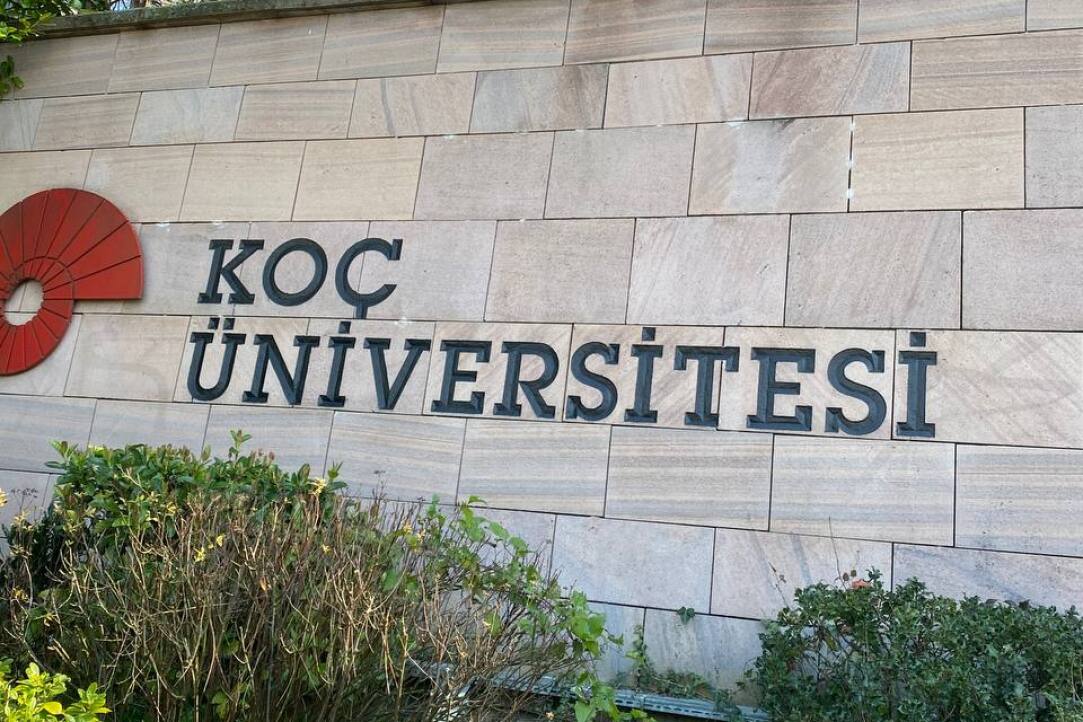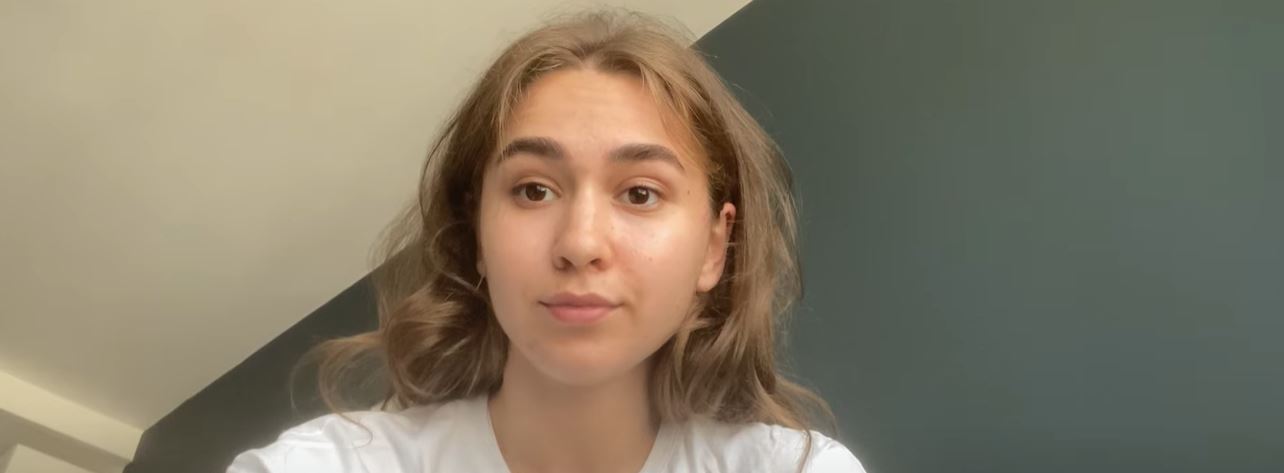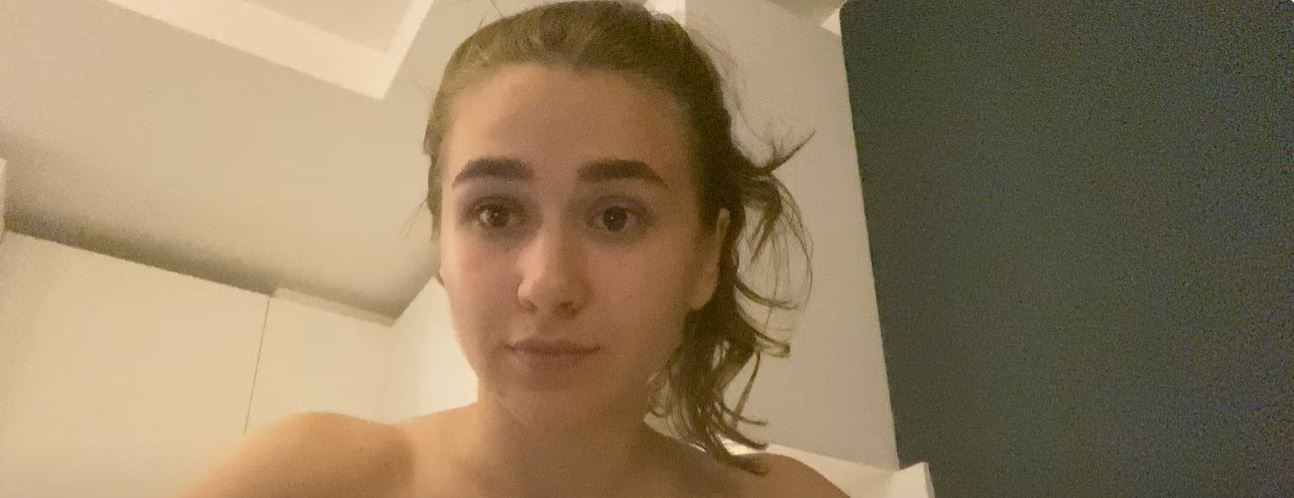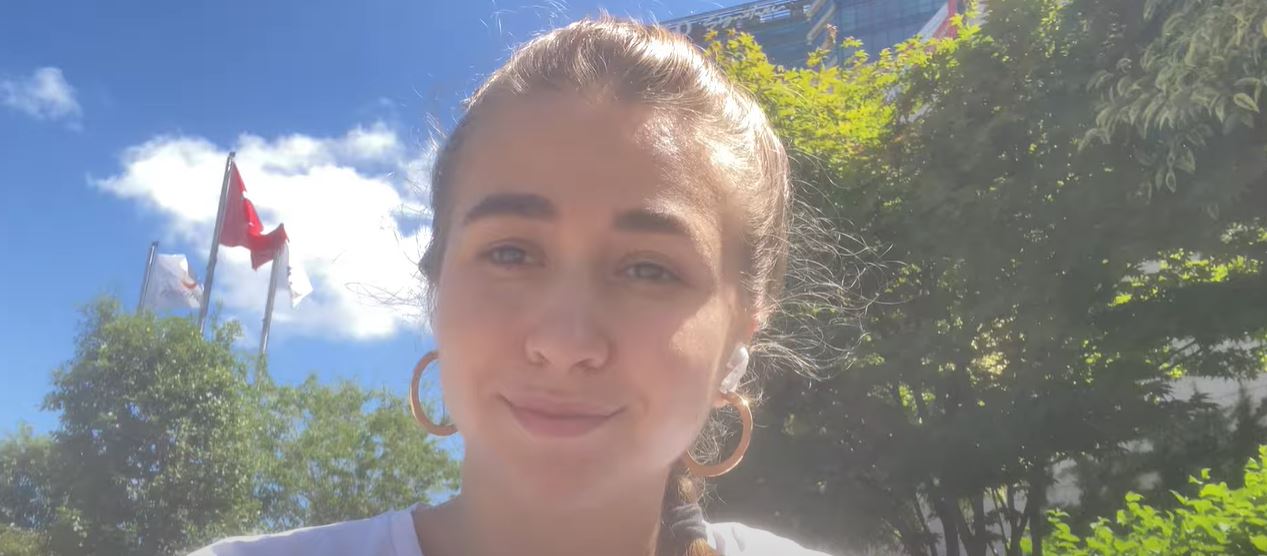Soulful and inspiring Turkey: an unforgettable learning experience for future international management experts
“I spent my last study day in tears: I didn't want to say goodbye to the university and teachers.” Arina Simonova talks about the deep emotions of studying at a Turkish university and who should choose this direction when applying for a mobility programme.
Arina Simonova, a student of the Master's programme “International Management” at the HSE Graduate School of Business, visited Koç Private University in Istanbul. The institution was founded by the head of the Turkish business empire Koç Holding.

Choosing a mobility programme and visa issues
Koç was the second university on my list of priorities when applying for the mobility programme, so I was glad to get the opportunity to go there. The most important criterion for choosing the country was the university: Koç is the best university in Turkey — it is a private university with a very high academic level.
Since citizens of the Russian Federation do not need a visa to enter Turkey, I did not need a student visa either. By law, Russians can stay in Turkey for 60 consecutive days and 90 days in total for a period of 180 days. Study programme lasts longer than this period, so the university issues its students with a residence permit.
Choice of accommodation
The university offers the opportunity to get a dormitory, but there are fewer places than there are students, so there may not be enough places and you need to take care of an alternative option. Among the disadvantages of living in a student dormitory, I would highlight the following: students live in three-person rooms — when preparing for exams, there may not be enough workspace, some buildings do not have a kitchen. The main advantage of this option for many students is the location: the university is outside the city, in Sariere, as well as the dormitory, from which there are regular free shuttles to the main campus of Koç . So, it takes a maximum of 10 minutes to reach the university.
I initially decided that I didn't want to live in a dormitory because I plan to live in Istanbul, so I looked for a flat to rent. I used AirBnb: despite the fact that the site does not work in Russia in a full-fledged format, I was able to find a suitable flat and asked a friend who was abroad to book and pay for it for me, notifying the owner. Many students arrive a couple of weeks before classes start and look for a flat with an on-site realtor, but I felt more comfortable deciding on accommodation in advance.
When choosing a flat, I was guided by its location: a green metro line for easy access to the university; preferably in the middle of it, to be equidistant from the center and the outermost metro station Hacıosman (Hacıosman), where there are direct buses and shuttles to the university.
As it is necessary to obtain a residence permit, you should look for accommodation, the owner of which will agree to sign a notarised contract for the period of your stay (this is necessary for the migration office, as otherwise the residence permit will not be approved). In addition, in Istanbul there are some areas where you can not apply for a residence permit, so the location is the most important criterion of the search.
The price usually varies from 20 to 30 thousand liras. I was able to find accommodation quite quickly — it didn't take more than a week. The added advantage of having my own place, of course, was the possibility to host guests: my friends and family came to stay with me, especially during holidays and Ramadan. There were also regular free shuttles to the metro from the MINT LEVENT OLIVE apartment complex where I rented my flat. The metro was 10 minutes from my house, but you have to walk uphill the whole way, which is quite tiring.
My way to the university took about an hour and a half: shuttle from home to the metro, 15 minutes by metro to Hajosman, and then either 20 minutes by paid university shuttle to the campus (32 lira), or 40 minutes by 154 bus to the campus, or 50 minutes by 150 bus to the university gate + 10 minutes walk on the territory of Koça, or about 40 minutes also by dolmush to the campus. In general, there are many ways to get there. The main thing is to choose the most optimal one, check with the current bus schedule, and remember that traffic jams in Istanbul are very common. By the way, the metro in Istanbul is open 24 hours a day from Friday to Sunday.
Means of communication
After my arrival, I immediately made a Turkish SIM card in Turkcell. I had two phones with me: one main one with a Russian SIM-card, and one spare one, which I bought a week before leaving Russia, to insert a Turkish SIM-card there and to distribute the Internet on my main one. Looking ahead I can say that this was not the most wise decision. The thing is that foreign phones are blocked on the territory of Turkey in 120 days after arrival, they can't receive calls, sms, and can only work via wi-fi. As both my phones came with me, both were blocked, because of which I had to buy another phone on the territory of Turkey. So, it is better to bring your main phone and buy a second one in Turkey so that you always have a working means of communication. Devices on the territory of Turkey are on average twice as expensive as in Russia, but buying a phone will greatly ease the existence in Turkey (I bought a regular phone for 6 thousand liras in MediaMarket, about 20 thousand rubles).
There is also another option: to register the phone you brought with you in order to avoid being blocked. However, in this case you have to pay 33 thousand liras, about 100 thousand roubles, for the registration of the device. It is also necessary to confirm your identity in the office of the mobile operator after obtaining a residence permit, because the SIM card will work without such confirmation for 3 months only, and it will be impossible to buy a second one with the same passport.
Payment options
An important issue when staying abroad is payment. I had dollars in cash with me in case of any unforeseen circumstances, I also had a Unionpay card from Gazprombank, and — the most important one — Letim. "Letim" is an electronic wallet for Russian tourists in Turkey, which is based on the Troy payment system. With the help of this system I paid for absolutely everything (except taxis, it could not be added to Uber) — deliveries, fares, withdrew money from ATMs, made online purchases. You can use Letim and pay by QR code, but then you must have mobile internet on your phone. I ordered a physical plastic card and used it like a regular bank card. When withdrawing from ATMs and topping up the card (topped up via SPB from a card/account of any Russian bank) there is a small commission. I downloaded the app and registered while I was still in Russia; card delivery can also be ordered in Russia. Sometimes there were small glitches in the system, but they were solved very quickly with the operator via chat in Telegram.
Getting to know the city
I came to Turkey seven days before the orientation week to adapt to the city, to understand the logistics and some local peculiarities. I can tell you that Istanbul is a huge city that is located in Europe and Asia at once and is separated by the Bosphorus. You have to get used to it, understand its rhythm and character. Istanbul is a very unique and beautiful city that lives in a fast rhythm, a large number of tourists come here — all this can affect the impression of the city. The city will especially appeal to people who love cats, because they are real residents! You should take into account that Istanbul is not spotlessly clean, especially in the tourist areas. The architecture, especially the mosques, and many of the neighbourhoods are incredibly beautiful. I even organised a photo shoot in the city to remember my sense of Istanbul's beauty — the Bosphorus, the cute and cosy streets. Istanbul definitely has its own special atmosphere.
I can't help but mention my personal love for Turkish food. There are so many incredibly delicious dishes in Turkey! I can especially recommend the local bagel simit (they are sold at every turn and are addictive), lentil soup, iskender, künefe at Safa Cafe, kadaif ice cream, Basque milk chocolate cheesecake from the Vieynna Kahvesi coffee chain, balik ekmek (especially delicious at Mario's place in Ortakey), baklava with pistachios. And my personal favourite: chocolate with baklava Damak — one of the most delicious chocolates in my life.
Also, they really love coffee in Turkey, so I quickly started to follow the local gastronomic habits.
Adaptation at university
The first week in Koç was dedicated to adaptation, getting to know the university and the students, orientation in Istanbul, some bureaucratic issues including applying for health insurance, choosing courses, etc. The university explained the steps to take to apply for a residence permit, organised a Turkish breakfast in a restaurant, and held a session with a psychologist to help students adapt. The orientation week was great and very well thought out.
In addition, the university assigned mentors in advance, dividing students into groups of five so that issues that arose could be addressed quickly. Koç has a very complex CUSIS system that is used to select courses and does not always work correctly. In addition, the course selection process itself is very complicated: there is a high probability of not getting into the courses that were originally selected, and mentors have meetings in Zoom to help and sort this out.
Koç has a huge range of courses. Many have pre-requisites and/or you need a consent from the instructor. In my case, many of the courses were just that, so to get in, I emailed the instructors two weeks before the courses were approved (all the students in the large hall go online at the same time to enrol into the courses) to get pre-approved so I could definitely get into the courses I wanted. I was also able to arrange my schedule so that I had to come to Koç four times a week, with Friday, Saturday, and Sunday being my day-off. This schedule was perfect considering that I lived in Levent station, practically in the centre of Istanbul.
I was very lucky with my teachers. Besides being extremely interested in exchange students, experiences, and interests, they are also incredibly wonderful and interesting people. I genuinely enjoyed all my pairings, even the most difficult ones, and I learnt with great pleasure. I spent my last day in tears: I didn't want to say goodbye to the university and my teachers.
The most difficult thing was to combine some disciplines from the GSB, which went remotely and disciplines in Koç, so in the 3rd module I had a very heavy load. However, these are temporary difficulties and I still enjoyed my stay in Istanbul very much.
Campus area
Koç is a very beautiful university and it is a pleasure to study there. It goes a little deeper into the forest area, you can see the sea from the windows of the university. The main building reminded me a little bit of Hogwarts. It is very convenient that the campus has absolutely everything: cafes, restaurants, beauty salon, skating rink, swimming pool, gym, supermarket, bank, etc.
All students, except for lawyers and nurses, study in English, so there are also no problems in communication with other students and teachers. This can't be said about Istanbul itself, where most people don't speak English, so it's better to learn at least basic phrases in Turkish before travelling and download a Turkish translator on your phone. I started learning Turkish a week before my trip, and even this level of knowledge often helped me out.
Koç organises a lot of events and activities for students, so you won't be bored — dance festival (Koç team is the best student team in Turkey, so the concerts are very large-scale, although they are free), music festivals where Turkish artists perform, excursions, trips to different cities, etc.
In conclusion, I would like to note that I met a huge number of warm, kind, intelligent and interesting people both from Turkey and from other countries. I was able to travel around Turkey — to go to Cappadocia, to fly on balloons. I expected that I would enjoy studying on the mobility programme and that the trip would bring a lot of joy, but I did not think that my experience would be so vivid. I am eternally grateful to the university for this opportunity.
Arina on studying in Koc University. Part 1
 Video: Arina Simonova
Video: Arina SimonovaArina on studying in Koc University. Part 2
 Video: Arina Simonova
Video: Arina SimonovaArina on studying in Koc University. Part 3
 Video: Arina Simonova
Video: Arina Simonova